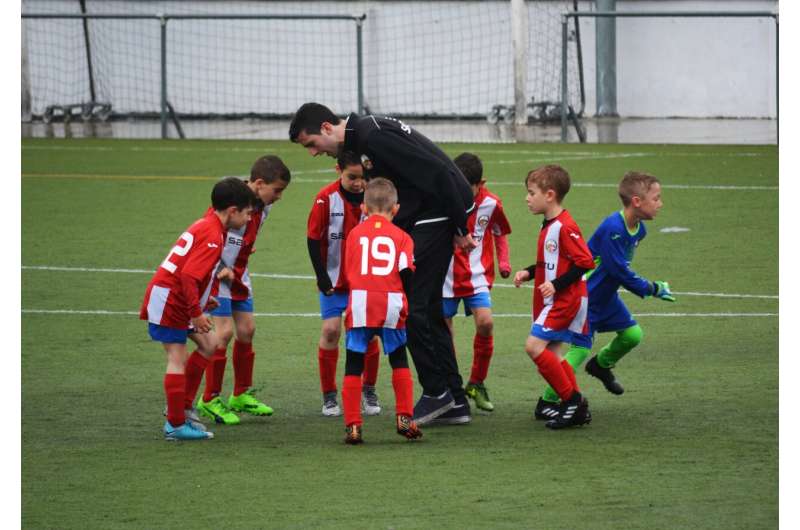Sporting tips for parents and preschoolers

Photo Credit: Unsplash/CC0 Public Domain
Parents should think twice before enrolling preschoolers in competitive sports programs, say experts from Flinders University, who are concerned about sports participation throughout school through young adulthood.
The alert follows extensive interviews with 16 parents of children between the ages of three and five to assess the motives, beliefs and attitudes of parents who engage their children in organized competitive sport at a young age.
The three to five year old children regularly participated in 11 sports ranging from modified forms of netball, soccer, basketball and cricket to swimming lessons, dancing and gymnastics, with parents keen to teach their children from a young age.
In addition to the benefits of developing motor skills, social skills, positive self-efficacy, and increased mental health and well-being, early participation can lead to injury, boredom, or mental burnout, which also contributes to increasing midlife dropout rates. late childhood.
A previous study found that children who participate before the age of six have an increased tendency to drop out of organized sport within four years.
Broader social and cultural forces also play a role in parents’ motivation and belief in the benefits and challenges of modern sport, says lead author Emilea Mysko, whose doctoral thesis focuses on children’s sporting participation and parental role models.
“What these and other studies have found is that parents need to be well informed about the short- and long-term benefits and risks of making a decision to engage in competitive sport, especially at a young age,” says Ms. Mysko.
“Parents and [caregivers] need to look beyond social norms, sports groups and government sports campaigns and consider enrolling their child in an organized sports program.
“At a higher level, youth sport policymakers need to review the current youth sport model of participation to ensure that those who start in sport stay in sport – which is not often the case throughout childhood development.”
Co-author Associate Professor Sam Elliott, an expert in the field of sport education, participation and retention, says there are many psychosocial implications to consider in youth sport.
“On the one hand, we may think that early involvement in sports, if done carefully, can offer benefits for children.
“On the other hand, the start of children in competitive sports from the age of three – often referred to as the ‘Tiger Woods effect’ – is associated with a number of potential risks now and in the future.”
The paper was published in Qualitative research in sport, exercise and health. The third author of the study, Professor Murray Drummond, director of the Sport, Health, Activity, Performance and Exercise (SHAPE) Research Center at Flinders University, is the author of Boys’ Bodies: Sport, Health and Physical Activity (Palgrave Macmillan) and researches now the emerging field of mental wellbeing and the role of sport.
More information:
Emilea Mysko et al, Understanding parents’ motives and attitudes in enrolling three- to five-year-old children in organized sports programs, Qualitative research in sport, exercise and health (2022). DOI: 10.1080/2159676X.2022.2152082
Provided by Flinders University
Citation: Sports Tips for Parents and Preschoolers (2023 February 13) Retrieved February 13, 2023 from https://medicalxpress.com/news/2023-02-sporting-parents-preschoolers.html
This document is protected by copyright. Except for fair trade for the purpose of private study or research, no part may be reproduced without written permission. The content is for informational purposes only.